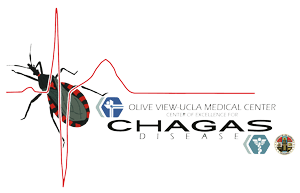
What is Chagas Disease?
Chagas disease or American trypanosomiasis is a disease caused by a protozoan parasite called Trypanosoma cruzi.
The most common way for humans to be infected is through the faeces of an insect called the kissing bug. The names of this insect vector are as varied as the countries where it is found: vinchuca, chinche, barbeiro, pito, chichá guazu and others.
The parasite can also be transmitted in a number of other ways:
- from mother to child during pregnancy
- through a blood transfusion from an infected donor
- through an organ transplant from an infected donor
- through the consumption of food and particularly drinks contaminated with the faeces of infected bugs
- accidentally in the laboratory
One of the peculiarities of this infection is that the parasite can live in the body for a long time without provoking symptoms. However, it may eventually affect the host’s heart or digestive system and in some cases cause death.
It is estimated that more than 8 million people have the disease worldwide and that most of them do not know that they are infected.

CENTER OF EXCELLENCE FOR CHAGAS DISEASE
FOLLOW US
